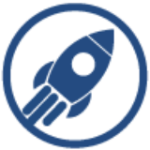Open-Source Admin Dashboards
Index with production-ready Open-Source Admin Dashboards with best practices applied, authentication, modern UI, docker and common modules
Django
Django is a high-level Python web framework designed for rapid development of secure and maintainable websites. Created in 2003 and released publicly in 2005, it follows the "batteries-included" philosophy, providing almost everything developers need to build web applications out of the box.
Django is known for its emphasis on the DRY (Don't Repeat Yourself) principle and promotes reusable code. It scales well from small projects to large enterprise applications, making it popular with companies like Instagram, Pinterest, Mozilla, and The Washington Post.
Django AdminLTE
FREE
Django Starter with AdminLTE Design enhanced with Dynamic Services, Charts, CLI Package, Docker Support and CI/CD Scripts

Django Starter with Argon Dashboard Design enhanced with Dynamic Services, Charts, CLI Package, Docker Support and CI/CD Scripts

Django Starter with Berry Design enhanced with Dynamic Services, Charts, CLI Package, Docker Support and CI/CD Scripts

Django Starter with Black Dashboard Design enhanced with Dynamic Services, Charts, CLI Package, Docker Support and CI/CD Scripts

Django Datta Able
FREE
Django Starter with Datta Able Design enhanced with Dynamic Services, Charts, CLI Package, Docker Support and CI/CD Scripts

Django Starter with Material Design enhanced with Dynamic Services, Charts, CLI Package, Docker Support and CI/CD Scripts

Django Starter with Volt Bootstrap5 Design enhanced with Dynamic Services, Charts, CLI Package, Docker Support and CI/CD Scripts

Rocket Django
FREE
Tailwind & Django Starter with Rocket Design built with Dynamic Services, Charts, CLI Package, Docker Support and CI/CD Scripts

Rocket Django HTMX
FREE
Free Django Starter build with Charts, Dynamic Services (DataTables, API), HTMX Integration and Tailwind/Flowbite for Styling

Flask
Flask is a lightweight Python Web Framework designed to make getting started with web development quick and easy, while still being powerful enough for complex applications. Created in 2010 by Armin Ronacher as an April Fool's joke that evolved into a serious project, Flask is known for its simplicity and flexibility.
Unlike Django's "batteries-included" approach, Flask follows a "bring your own tools" philosophy, giving developers more freedom to choose components that fit their specific needs. This makes Flask ideal for smaller projects, APIs, microservices, and situations where customization is prioritized over convention.
Flask AdminLTE
FREE
Free Flask starter enhanced with Dynamic Tables, Charts, Docker Support and CI/CD for Render

Free Flask starter built with authentication, database, and Docker support on top of Berry Dashboard Design.

Flask Volt Dashboard
FREE
Built with Flask, Bootstrap 5, Authentication and Docker Scripts on top of Volt Dashboard Design

Rocket Flask
FREE
Tailwind & Flask Starter with Rocket Design built with Dynamic Services, Charts, Docker Support and CI/CD Scripts

Api-Django
React Berry Django
FREE
Full-Stack seed project crafted on top of Berry Free Version, React and Django API

React Purity Django
FREE
Full-Stack Starter crafted on top of Purity Dashboard, React and Django API

Api-Flask
React Berry Flask
FREE
Full-Stack seed project crafted on top of Berry Free Version, React and Flask

Api-Nodejs
React Berry NodeJS
FREE
Full-Stack seed project crafted on top of Berry Dashboard, React and NodeJS

React Horizon NodeJS
FREE
Full-Stack seed project crafted on top of Chakra UI, React and a simple NodeJS Backend

Firebase
React Datta Able (free version) integrated with Firebase backend and Google Auth

React Horizon UI (Free Version) with Firebase backend and Google Auth













































